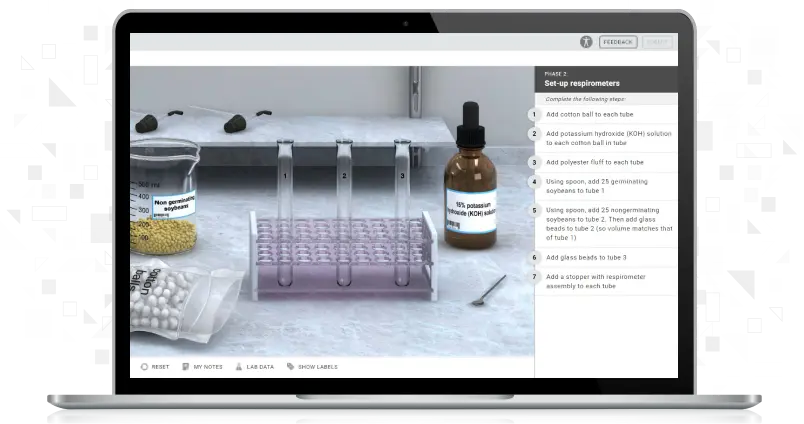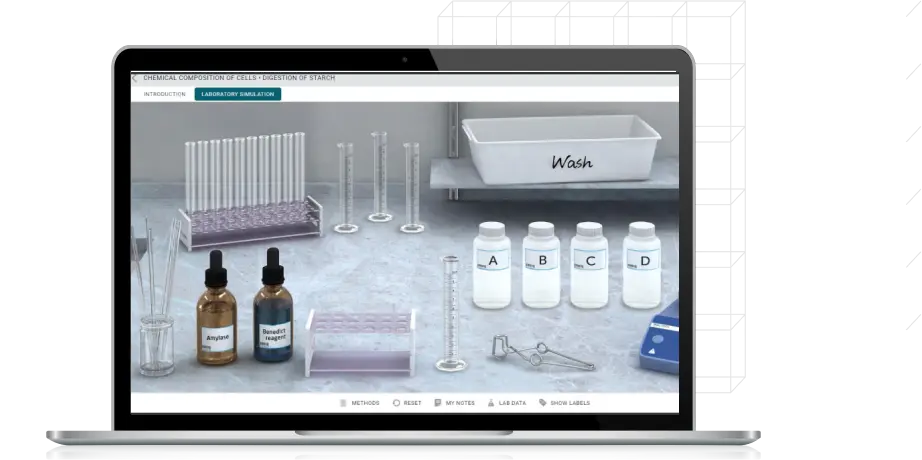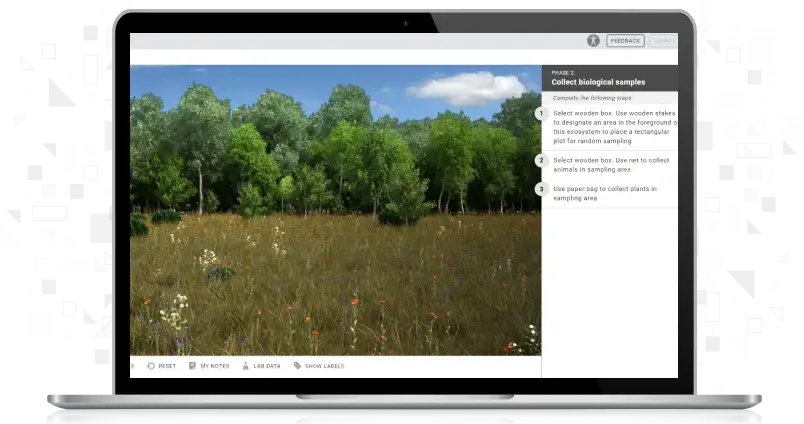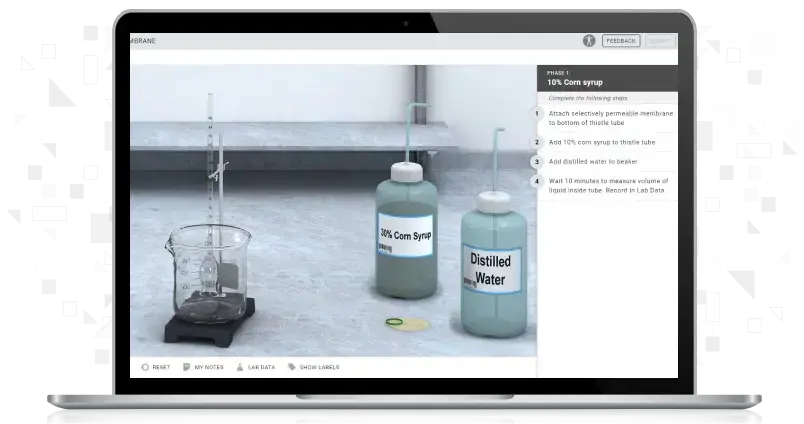
Cellular Respiration: Measuring Energy Production in Plants
In this simulation, you will understand how cells can convert sugar molecules into usable energy using a process called cellular respiration and compare the volume of oxygen consumed by growing (germinating) soybean seeds and nongerminating soybean seeds in order to estimate the amount of cellular respiration occurring.


